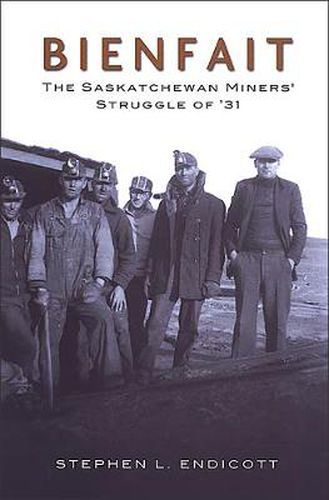Readings Newsletter
Become a Readings Member to make your shopping experience even easier.
Sign in or sign up for free!
You’re not far away from qualifying for FREE standard shipping within Australia
You’ve qualified for FREE standard shipping within Australia
The cart is loading…






Against all odds, the miners of Bienfait, Saskatchewan attempted, in 1931, to change their miserable situation by organizing a union. Stephen Endicott focuses on the miners’ tumultuous thirty-day strike to explore the social consequences of capitalist restructuring during the Great Depression. The miners’ bid to gain union recognition with the aid of the Workers’ Unity League of Canada failed, and Endicott’s in?depth examination of the key factors and players attempts to explain why it did so, and why a similar union drive a decade later eventually succeeded.
Based on a large number of both oral and written primary resources, Bienfait offers a new interpretation of the role of the corporations, the government, the courts and the police and in the process demonstrates how a militant union leadership helped the workers gain the strength and unity of purpose to challenge the powers of wealth and deep-seated prejudice. Endicott opens a new chapter in the history of Canadian labour relations which reveals much about Canadians and Canadian society during the Depression.
$9.00 standard shipping within Australia
FREE standard shipping within Australia for orders over $100.00
Express & International shipping calculated at checkout
Against all odds, the miners of Bienfait, Saskatchewan attempted, in 1931, to change their miserable situation by organizing a union. Stephen Endicott focuses on the miners’ tumultuous thirty-day strike to explore the social consequences of capitalist restructuring during the Great Depression. The miners’ bid to gain union recognition with the aid of the Workers’ Unity League of Canada failed, and Endicott’s in?depth examination of the key factors and players attempts to explain why it did so, and why a similar union drive a decade later eventually succeeded.
Based on a large number of both oral and written primary resources, Bienfait offers a new interpretation of the role of the corporations, the government, the courts and the police and in the process demonstrates how a militant union leadership helped the workers gain the strength and unity of purpose to challenge the powers of wealth and deep-seated prejudice. Endicott opens a new chapter in the history of Canadian labour relations which reveals much about Canadians and Canadian society during the Depression.